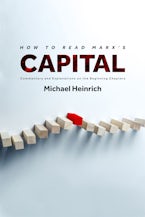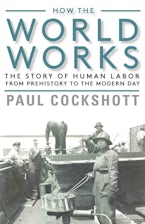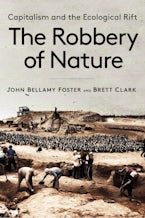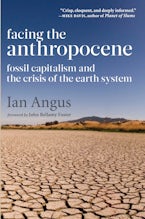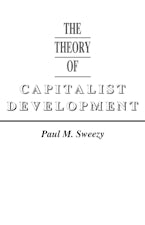 Review of the Month
Review of the Month
Power, Control, Inequality, and Democracy in the Twenty-First Century
 Article
Article
Neocolonialism through Debt: How French and U.S. Banks Underdeveloped Haiti
 Article
Article
Gogol’s Nose: On the Scent of Our Times
 Review
Review
Black Scare in California: Blacks, Reds, and Revolution in the 1960s and ’70s
 Archive
Archive
Freedom and Economics
 Introduction
Introduction
A Special Issue on Communes in Socialist Construction
 Interview
Interview
Venezuela’s Communal Project
 Article
Article
Socialist Communes and Anti-Imperialism: The Marxist Approach
 Article
Article
The Worker-Peasant Alliance in the Transition to Socialism Today
 Article
Article
Marx and Communal Society
 Article
Article
Charting a Communal-Ecological Path: Beyond the Growth Fetish
 Interview
Interview
Land, Cooperation, and Socialism
BEST SELLERS
So why not just end the U.S. embargo on Venezuela? If Venezuelans are coming here just to escape economic problems at home, reducing the embargo should bring about a major decline in Venezuelan asylum seekers.
+ read moreRecently the podcast Cosmonaut hosted Chris Gilbert for a discussion of his new book 'Commune or Nothing!' They covered topics such as: The history of communes, the Venezuelan cooperative movement and the drive to build state-run industry; István Mészáros' perspective on how the commune centers the communal control of the labor process; the problem of attracting the youth to communes today; the mystical side of communes in relation to human development, and more...
+ read moreAlready in the early 1980s if not before: “It was clear to most of us that socialism couldn’t survive without radical democratisation ... it had to be based on consent.” Nevertheless, for Sheehan as for many of us on the left, the demise of the socialist bloc represented a defeat and the restoration of capitalism. It was “the most dramatic upheaval, politically and psychologically,” Sheehan says.
+ read moreThe book ends with a broad literature review on our possible postcapitalist future by Greg Albo. This concluding chapter and the rest of the book offer the reader hope to overcome the contemporary crisis and meet a healthier and happier future
+ read more










